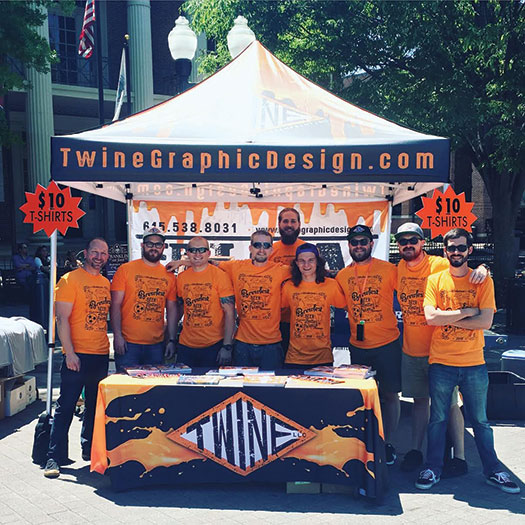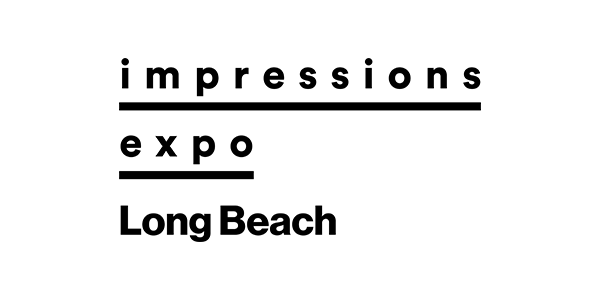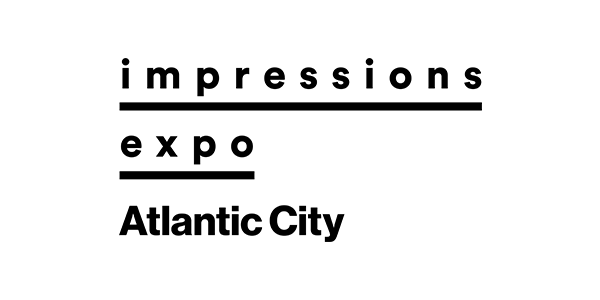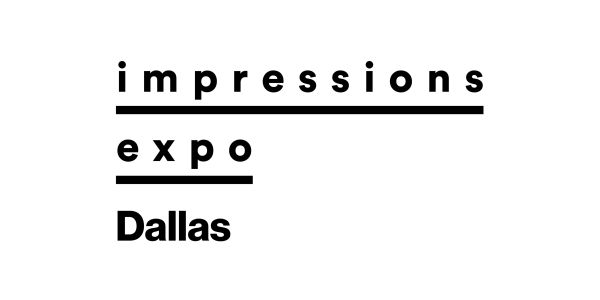While enrolled at Western Kentucky University in 2008, John Bond and Brandon Hagan started laying the groundwork for a relationship they hoped would be rewarding both personally and professionally.
The two students not only became friends, but also eventual business partners, building what — in 2011 — became Nashville, Tennessee-based Twine Graphics & Screen Printing. According to Bond, Hagan had screen-printing knowledge and an entrepreneurial spirit while Bond, who shared ambition, also provided people skills.
For all they brought to the table, though, the men lacked money.
“Twine’s first sales were outsourced and focused on strong design abilities and a commitment to deliver to get them in the door with many clients in the Nashville area,” Bond says.
After earning enough capital, the men finally purchased manual screen-printing equipment — kept in a shed in Bond’s backyard — in 2012. Sales boomed that year for the two former Hilltoppers, and business took a hearty step forward in 2013. They bought new M&R equipment to be used in the company’s first brick-and-mortar location.
New faces also joined the fold, as the company made three external sales hires. Sales grew by 300% that year, due in part to an expanded services offering, including embroidery, signage and promotional products — all with the goal of bringing as much in-house as possible.
Since that banner year in 2013, the company’s success has snowballed. Twine moved into its current location, a larger space in Franklin, Tennessee, a Nashville suburb just south of the city. The company also added five more employees and a host of new equipment, including two manual presses, an M&R Sportsman 10-color/12-station automatic press, M&R Chameleon six-station/four-color press, M&R Economax D conveyor dryer, M&R Sidewinder six-station/six-color press and a Mini Sprint 2000 gas dryer.
The exponential growth since the company’s inception in 2011 has been a whirlwind for its co-founders. To accompany that growth, the company also grossed an estimated $2 million in revenue in 2016.
Screen Printing Rules
Bond and Hagan firmly believe screen printing is the cream of the crop when it comes to apparel decoration.
“There are lots of niche things that come and go, but nothing beats old-fashioned screen printing,” Bond says.
While the men have a wealth of screen-printing experience under their belts, they still experience challenges.
“We have a lot of combined knowledge in the screen-printing industry, but you are always going to have curve balls,” Bond says. “The biggest challenge in 2016 with screen printing was the variety of garment items, and probably more specifically, inconsistency from large manufacturers. We commonly run into the same garment behaving differently if it was produced in a different country.”
Bond says the company will bring more embroidery in-house when “the time feels right.” It also will do more in-house digital decorating, including heat-applied graphics, vinyl decoration and large-format printing. As for its bread-and-butter process, he says Twine also will expand screen-printing production.
While it would be easy to forgo business from smaller companies and start targeting “bigger fish,” Twine plans to avoid that temptation, continuing to treat all business as big business, Bond says.
“[Our niche is] local businesses and organizations,” he says. “You would think [focusing on doing business with larger companies] is common, but not so much in the Music City and the surrounding areas. Everyone in Nashville is chomping at the bit for music-industry business and we just tend to focus on taking care of everyone that does business with us in order to let the business grow organically through referrals.”
Finer Arts & Marketing
Design always has been an in-house process at Twine, a commitment made largely because Bond and Hagan hold fine arts degrees, as do three of their full-time employees.
The company typically sells eight to 10 logo designs each month.
“We don’t shy away from anything design-related,” Bond says. “Our production manager comes from years of working with [renowned Nashville screen printer and owner of Anderson Studios Inc.] Andy Anderson, so we are able to pair his simulated process skills with our design skills and give our clients [nearly] anything they can think of.”
When it comes to marketing, Twine relies heavily on word-of-mouth referrals instead of expensive media advertising. Bond says this necessitates not only going above and beyond a client’s expectations, but also owning up to mistakes.
“The best time to gain a client for life is when you make a mistake,” he says. “[Customers] fully expect you not to take responsibility for your mistakes. When you take care of them with no questions asked, it’s almost like people don’t even know how to react. The art of customer service and taking care of your clients is often lost with companies in our current society.”
It is not just word-of-mouth advertising that spreads the Twine name, however. The company also engages the community, regularly erecting a custom tent, displaying printed material and launching free Twine-branded shirt giveaways. Employees also take to social media to let customers know they don’t just represent business, but are an important asset to the Twine brand.
“Social media has been a good tool for us, as well,” Bond says. “We don’t hide who we do business with because we aren’t afraid they are going anywhere. We seek to engage them in the Twine brand and make them feel as though we are a valued partner, not just a vendor.”
Michael Quirk is an Atlanta-based freelance writer. For more information or to comment on this article, email Michael at [email protected].





